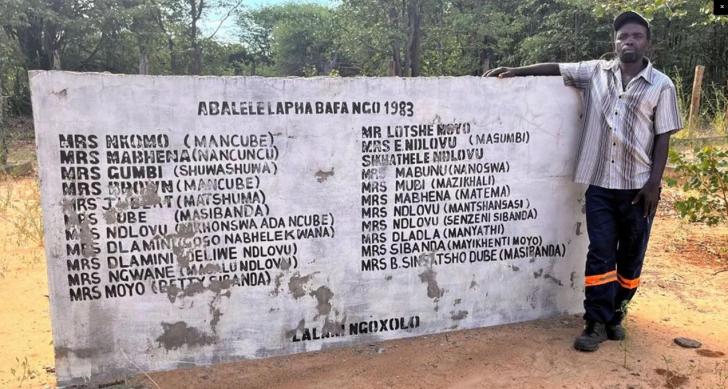News / National
Pressure mounts on govt over Gukurahundi hearings
06 Jul 2025 at 11:34hrs |
2 Views

Political activists and opposition leaders in Matabeleland have called on the government to immediately halt the ongoing Gukurahundi public hearings, citing concerns over their lack of transparency and the emotional trauma inflicted on survivors and families of victims.
The hearings, spearheaded by traditional leaders as per a 2019 resolution following a meeting between President Emmerson Mnangagwa and the Matabeleland Collective, have drawn widespread criticism from civil society and opposition parties who argue that the process is flawed and excludes the voices of key stakeholders.
Zapu leader Sibangilizwe Nkomo last week filed an urgent application at the Bulawayo High Court seeking to stop the hearings, but the case was dismissed for lack of urgency. In a further blow to his efforts, police reportedly barred Nkomo from addressing journalists outside the court.
The hearings are meant to provide a platform for victims and their families to share testimonies from the early 1980s Gukurahundi massacres, when the late former president Robert Mugabe deployed the North Korea-trained 5 Brigade to suppress dissent in Matabeleland and parts of the Midlands. Human rights groups, including the Catholic Commission for Justice and Peace, estimate that over 20,000 people were killed during the campaign of terror, which Mugabe later referred to as "a moment of madness."
Zapu deputy spokesperson Joakim Moyo described the current hearings as a "circus," accusing the government of abusing state resources and shielding perpetrators from accountability.
"The ranting by the Chiefs Council deputy president Fortune Charumbira makes the whole thing a circus, a way of abusing state funds on bloated ego intentions," Moyo said. "If the late vice president Joshua Nkomo were alive today, he would have rejected this process."
Moyo said the government's failure to pursue justice and transparency amounted to a betrayal of the victims, adding that Zimbabwe remains trapped in a cycle of denial and political manipulation.
"We need open brains, tolerance, and truth. Only then will peace locate and find us," he said.
United Movement for Devolution (UMD) leader Lovemore Moyo echoed the concerns, warning that the process is heavily politicised and fails to centre the voices of survivors.
"We submit that the resolution of the Gukurahundi genocide and its effects must be depoliticised and be inclusive of all stakeholders," said Moyo.
"Our well-considered opinion is that the views of the Gukurahundi victims must take precedence over those from the government. The wishes of the victims must guide the roadmap to resolution."
President Mnangagwa, who served as State Security Minister during the Gukurahundi era, has previously pledged to address the atrocities and facilitate national healing. However, critics say his administration has made little meaningful progress, and accuse it of attempting to sanitise history through a tightly controlled process.
Calls are now growing for the process to be reopened, restructured, and led by independent, neutral actors - with full involvement from affected communities, civil society, and international observers.
For many in Matabeleland, the path to healing remains blocked by secrecy, political interests, and a deep mistrust of the state.
The hearings, spearheaded by traditional leaders as per a 2019 resolution following a meeting between President Emmerson Mnangagwa and the Matabeleland Collective, have drawn widespread criticism from civil society and opposition parties who argue that the process is flawed and excludes the voices of key stakeholders.
Zapu leader Sibangilizwe Nkomo last week filed an urgent application at the Bulawayo High Court seeking to stop the hearings, but the case was dismissed for lack of urgency. In a further blow to his efforts, police reportedly barred Nkomo from addressing journalists outside the court.
The hearings are meant to provide a platform for victims and their families to share testimonies from the early 1980s Gukurahundi massacres, when the late former president Robert Mugabe deployed the North Korea-trained 5 Brigade to suppress dissent in Matabeleland and parts of the Midlands. Human rights groups, including the Catholic Commission for Justice and Peace, estimate that over 20,000 people were killed during the campaign of terror, which Mugabe later referred to as "a moment of madness."
Zapu deputy spokesperson Joakim Moyo described the current hearings as a "circus," accusing the government of abusing state resources and shielding perpetrators from accountability.
"The ranting by the Chiefs Council deputy president Fortune Charumbira makes the whole thing a circus, a way of abusing state funds on bloated ego intentions," Moyo said. "If the late vice president Joshua Nkomo were alive today, he would have rejected this process."
Moyo said the government's failure to pursue justice and transparency amounted to a betrayal of the victims, adding that Zimbabwe remains trapped in a cycle of denial and political manipulation.
"We need open brains, tolerance, and truth. Only then will peace locate and find us," he said.
United Movement for Devolution (UMD) leader Lovemore Moyo echoed the concerns, warning that the process is heavily politicised and fails to centre the voices of survivors.
"We submit that the resolution of the Gukurahundi genocide and its effects must be depoliticised and be inclusive of all stakeholders," said Moyo.
"Our well-considered opinion is that the views of the Gukurahundi victims must take precedence over those from the government. The wishes of the victims must guide the roadmap to resolution."
President Mnangagwa, who served as State Security Minister during the Gukurahundi era, has previously pledged to address the atrocities and facilitate national healing. However, critics say his administration has made little meaningful progress, and accuse it of attempting to sanitise history through a tightly controlled process.
Calls are now growing for the process to be reopened, restructured, and led by independent, neutral actors - with full involvement from affected communities, civil society, and international observers.
For many in Matabeleland, the path to healing remains blocked by secrecy, political interests, and a deep mistrust of the state.
Source - Southern Eye
Join the discussion
Loading comments…
































